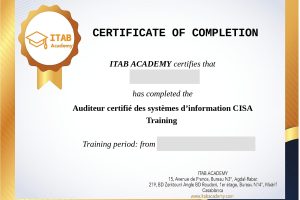Elevate Your Leadership Journey: Choosing the Right Leadership Certification
In today’s competitive business landscape, effective leadership is a cornerstone of success. Leadership certifications offer professionals the opportunity to enhance their skills, expand their knowledge, and validate their expertise in leadership practices and principles. However, with a myriad of options available, selecting the right leadership certification can be daunting. This guide is designed to provide insights and considerations to help you navigate the world of leadership certification and choose the path that aligns with your career goals and aspirations.
**1. Define Your Leadership Goals and Objectives**
Start by defining your leadership goals and objectives. Consider the following questions:
– What specific leadership skills or competencies do I want to develop or enhance?
– Are there particular leadership styles or approaches I want to learn more about?
– What are my short-term and long-term career aspirations as a leader?
– How do I envision leveraging a leadership certification to advance my career or make a greater impact in my organization?
Understanding your goals will guide you in selecting the most relevant leadership certification that meets your professional development needs.
**2. Research Leadership Certification Options**
Once you’ve clarified your goals, research the various leadership certification options available. Consider factors such as:
– Certification Providers: Explore certifications offered by reputable institutions, professional associations, or leadership development organizations.
– Certification Levels: Determine if the certification program offers different levels (e.g., Foundation, Intermediate, Advanced) to accommodate varying skill levels and experience.
– Curriculum and Content: Review the topics covered in the certification program to ensure they align with your learning objectives and areas of interest.
– Delivery Format: Consider whether the certification is available through online courses, in-person workshops, or a combination of both, and choose the format that best suits your learning style and schedule.
– Instructor Expertise: Investigate the qualifications and experience of the instructors or facilitators to ensure they are credible and experienced in leadership development.
**3. Assess Certification Relevance and Industry Recognition**
Evaluate the relevance and industry recognition of each leadership certification. Consider factors such as:
– Industry Demand: Research the demand for leaders with specific certifications in your target job market or industry.
– Employer Preferences: Determine if employers in your field value or prioritize candidates with certain leadership certifications.
– Market Trends: Stay informed about emerging trends and developments in leadership practices to gauge the relevance of different certification programs.
Choosing a certification that is widely recognized and valued within the industry can enhance your credibility and marketability as a leader.
**4. Consider Practical Application and Skill Development**
Look for leadership certification programs that emphasize practical application and skill development. Consider factors such as:
– Case Studies and Simulations: Check if the certification program includes case studies, simulations, or real-world projects to apply leadership concepts in practical scenarios.
– Coaching and Mentorship: Assess if the certification provides opportunities for coaching or mentorship to receive personalized guidance and support in your leadership development journey.
– Peer Learning and Collaboration: Consider certifications that promote peer learning and collaboration, allowing you to exchange ideas and best practices with fellow participants.
Practical experience is essential for mastering leadership competencies and preparing for real-world challenges in leadership roles.
**5. Evaluate Career Benefits and Return on Investment (ROI)**
Evaluate the potential career benefits and return on investment (ROI) associated with obtaining the leadership certification. Consider factors such as:
– Career Advancement: Assess how the certification will position you for leadership roles or advancement opportunities within your organization or industry.
– Salary Increase: Research the impact of leadership certification on earning potential and salary prospects in leadership positions.
– Professional Growth: Determine if the certification will contribute to your professional growth and development as a leader, enhancing your leadership capabilities and effectiveness.
Choosing a leadership certification with strong career benefits and ROI can provide long-term value and contribute to your success as a leader.
**Conclusion**
Leadership certification can serve as a catalyst for your leadership journey, equipping you with the knowledge, skills, and credentials to excel in leadership roles and drive organizational success. By defining your goals, researching certification options, assessing relevance and industry recognition, considering practical application and skill development, and evaluating career benefits and ROI, you can choose the right leadership certification path that aligns with your aspirations and sets you on the path to leadership excellence. Remember that certification is just the beginning of your leadership development journey, and ongoing learning, practice, and reflection will be essential for continuous growth and success as a leader.




